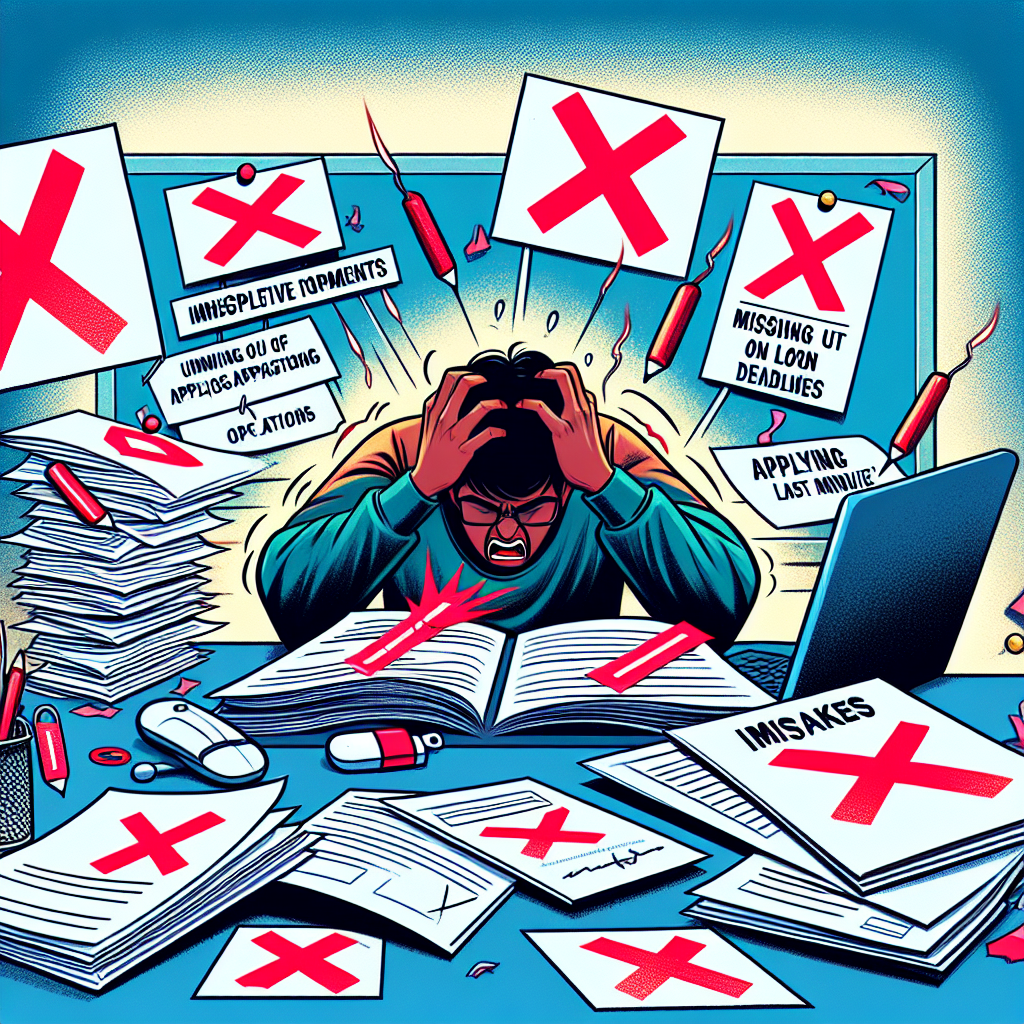Applying for residency is a vital step in a medical professional’s career, yet it can be a daunting process that is rife with potential pitfalls. Understanding what not to do can make all the difference between success and failure. In this article, we will explore key mistakes to avoid during your residency application, so you can navigate this journey more smoothly and emerge as a strong candidate.
Neglecting to Research Programs
One of the most critical errors applicants make is applying to residency programs without thorough research.
Why Research is Essential
Each residency program has its specific requirements, culture, and strengths. Taking the time to understand these factors will help you tailor your application effectively. Avoid the generic approach; show how your background and interests align with a particular program’s values and focus areas.
How to Conduct Effective Research
- Visit Program Websites: Utilize resources like the Accreditation Council for Graduate Medical Education (ACGME) to find detailed information.
- Reach Out to Current Residents: Connect on platforms like Instagram or Twitter. They can provide invaluable insights into the day-to-day life in their programs.
- Attend Residency Fairs: Engaging in discussions will help you grasp different programs’ nuances.
Ignoring Letter of Recommendation Guidelines
Letters of recommendation can make or break your application.
The Pitfall of Poor Recommendations
Too often, applicants ask for letters from acquaintances rather than mentors who truly understand their skills and dedication.
Tips for Securing Strong Letters
- Choose Wisely: Select faculty, mentors, or supervisors who know you well and can speak to your strengths.
- Provide Context: Give your recommenders your CV and details about the programs you are applying to. This will allow them to customize their letters, highlighting your suitability for specific residencies.
- Ask Early: Don’t wait until the last moment. Give your referees ample time to write thoughtful letters.
Overlooking Personal Statements
Your personal statement is your chance to narrate your story and showcase your unique qualities.
Common Mistakes in Personal Statements
Many applicants either write cliched content or fail to convey genuine passion. This can make your application blend into the background.
Crafting an Engaging Personal Statement
- Be Authentic: Share your genuine motivation for pursuing medicine and residency, and reflect on significant experiences that shaped your career goals.
- Avoid Generic Language: Clichés or vague declarations about ‘wanting to help people’ do very little to stand out. Instead, provide specific examples and stories that give readers a window into who you are.
- Revise and Edit: Don’t hesitate to have mentors or friends review your statement. Fresh eyes can catch errors and suggest improvements.
Neglecting the Application Timeline
Timing is everything in the residency application process.
Importance of Staying Organized
Poor time management can sink your chances. Common issues include missing deadlines for ERAS submissions or failing to schedule interviews properly.
Tips for Effective Time Management
- Create a Timeline: Use a calendar to track important dates related to deadlines, interviews, and tasks you must complete.
- Prioritize Tasks: Break down the application process into manageable tasks and tackle them one at a time.
Underestimating the Importance of Interview Preparation
An interview can greatly influence the decision-making process, yet many applicants fail to prepare adequately.
The Risks of Being Unprepared
Being unprepared can lead to missed opportunities to impress interviewers and can even lead to choosing the wrong residency fit for yourself.
Interview Preparation Strategies
- Practice Common Questions: Familiarize yourself with questions that are often posed during residency interviews and practice your responses.
- Conduct Mock Interviews: Ask advisors or peers to conduct mock interviews. Feedback can illuminate areas for improvement.
- Know Your Application Inside & Out: Be prepared to discuss any part of your application comprehensively.
Not Following Up
Finally, many applicants overlook the importance of sending thank-you notes after interviews.
The Impact of Follow-Up
A simple thank-you note can reinforce your interest in a program and help you leave a lasting impression.
Crafting a Follow-Up Message
- Express Gratitude: Thank the interviewers for their time and the opportunity to learn more about the program.
- Reiterate Interest: Briefly touch on why you are particularly drawn to that program based on your conversation.
Conclusion
The residency application process is challenging, but by avoiding these common mistakes, you can strengthen your candidacy and increase your chances of success. Conduct thorough research, secure strong recommendations, craft a compelling personal statement, manage your timeline effectively, prepare for interviews, and remember to follow up. By doing so, you not only enhance your application but also position yourself as a competent and committed future resident ready to make a difference in the field of medicine. Good luck!


